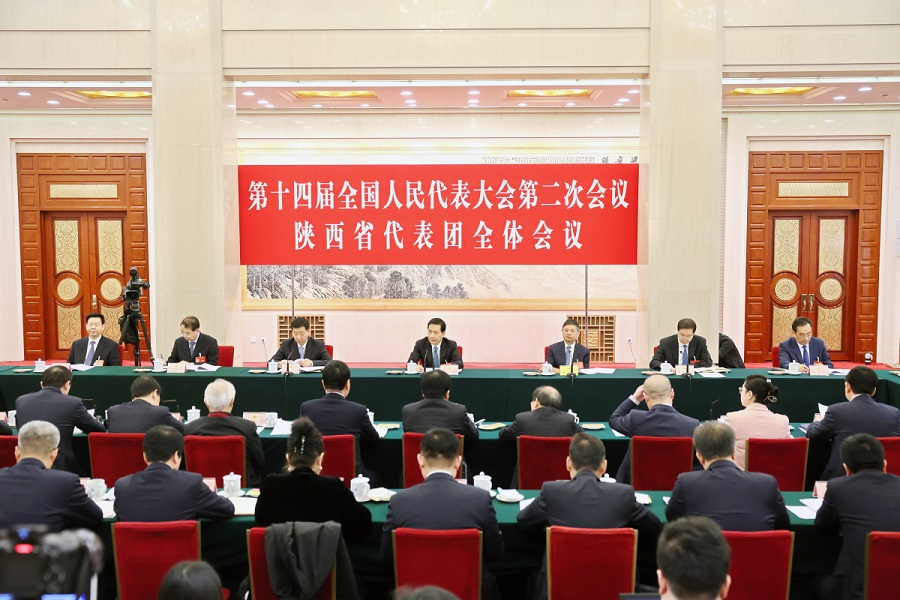Shaanxi prioritizes innovation and technology as key drivers, according to deputy

The delegation from Shaanxi province to the second session of the 14th National People's Congress holds an open panel discussion on March 6, 2024. [Photo by Feng Yongbin/chinadaily.com.cn]
Northwest China's Shaanxi province is making strides in the nation's pursuit of high-quality development by leveraging technological innovation as a pivotal driver of growth, spearheaded by green energy transformation and basic research, said Wang Xiao, a deputy to the 14th National People's Congress.
He made the remarks during the second session of the 14th NPC in Beijing on Wednesday.
Wang, who is also executive vice-governor of Shaanxi, said the province will continue to ride on scientific innovation to meet development opportunities and build itself into an innovation hotspot in the region.
One of the largest energy producers in China, Shaanxi's daily coal output topped 1.95 million metric tons on average last year, according to official figures.
As a major energy enterprise in the province, Shaanxi Coal and Chemical Industry Group has been ramping up efforts to improve the utilization efficiency of coal as a chemical raw material by tapping technological applications.
"The province must give more prominence to the technology drive," said Zhang Wenqi, chairman of the company and a deputy to the NPC, the country's top legislature.
Shaanxi province has long been renowned for its strength in scientific education: It serves as a base for scientific research and higher education in China, boasting advantages in modern agriculture, bio-engineering, space technology, new materials, and energy-saving technology.
Government figures reveal that Shaanxi is home to more than 1,800 research institutes, 111 higher education institutions and over 2.3 million professional and technical personnel, with university students surpassing 2 million.
Efforts can be stepped up to promote integration within the industrial chain, said Zhao Yulong, a professor at Xi'an Jiaotong University and also a deputy to the NPC.
He also suggested providing more financial support for technological upgrades that can contribute to the modernization of national defense, the country's economy and people's livelihood.
- Top legislature schedules standing committee session for late February
- China's top legislator meets with Uruguayan president
- Senior legislator surveys Anhui on formulating outline of provincial 15th Five-Year Plan
- China's top legislator meets with British PM
- NPC deputies see more engagement with top court



